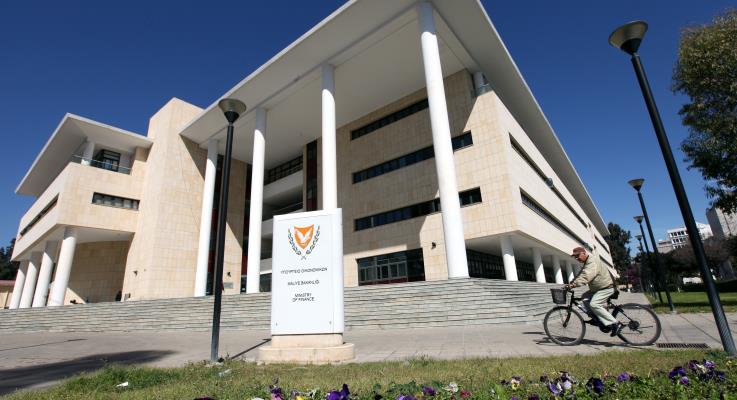The finance ministry reiterated on Thursday it’s not in a position to evaluate the mooted Cyprus-Greece electricity interconnector project as several parameters remain unknown, while the cost-benefit analysis provided by the project promoter got leaked to the media a day after being shared with parliamentarians.
Giorgos Panteli, permanent secretary at the finance ministry, told the Cyprus News Agency that the ministry’s stance on the matter will depend on the project’s impact on the economy and energy sectors of the country.
Panteli pointed out that these parameters involve regulatory decisions, the project’s financing agreement, the corporate structure of the organisation, and the business plan, all of which are not yet finalised.
“There is this unknown factor, which prevents us from completing our evaluation because it is important to have these elements before us to assess the project’s impact on the economy and specifically on the energy sector,” he said.
The permanent secretary was referring to how the project will affect conventional energy production, the development of renewable energy sources (RES) in the country, and electricity consumption prices.
In any case, he clarified that whether or not the decision is made for Cyprus to participate in the share capital of the Great Sea Interconnector, the evaluation of the economic impacts must be conducted.
“The finance ministry’s position essentially concerns the project’s implementation and will depend on the effects we determine it will have on the economy and the energy sector.”
Asked when the above matters are expected to be completed and whether they should have already been done given the current stage of the project, Panteli said:
“They should have already been done. We follow the media reports indicating that the project is in an advanced stage. But I believe that there must have existed the financing agreements or agreements with Nexans and Siemens for the implementation of the substations and the construction of the cable. None of this has come before us, so we do not have a complete picture to proceed with the evaluation.”
Panteli was also asked if the ministry is considering pausing the project based on what has been said, he reiterated that “we need to have a complete picture to be able to make a technocratic and objective assessment of the project.”
Regarding the decision of the Cyprus Energy Regulatory Authority (Cera) not to pass on the project’s cost to consumers before its implementation, the permanent secretary shared he agreed with it.
“If there had been a different decision, you understand that essentially, we as a country, as an economy, would be taking on the geopolitical risk associated with this project.”
Responding to who should assume the geopolitical risk, he said “I believe it should be the investor. The investor takes on various risks, whether it’s construction risk, technical risk, geopolitical risk, or financing risk. All of these are the responsibility of the implementing body.”
Panteli added he could not comment on whether there will be a benefit to Cyprus and its economy without assessing the studies.
“Since we have nothing before us, no one can say with certainty that there will be any benefit.”
A day earlier, Panteli and other officials had taken part in a lengthy discussion with MPs on the subject of the interconnector.
According to media reports, it was on Wednesday that Energy Minister George Papanastasiou handed to MPs a copy of the cost-benefit analysis on the interconnector. The analysis had been carried out by Greece’s independent power transmission operator or Admie – the project promoter.
By Thursday, local media got access to the analysis and were citing excerpts from it.
The analysis effectively examines two scenarios – the benefits to the economy over the next couple of decades of linking Cyprus’ electricity grid to Europe’s, versus the island remaining isolated.
The dossier is said to conclude that the former scenario is by far the preferable one – calculating ‘socioeconomic benefits’ to Cyprus of anywhere from €7.2 billion to €8.2 billion over the next 25 years.
These benefits, the analysis says, would be double the benefits from keeping Cyprus’ energy grid isolated.
Given the interconnector’s utility for importing or exporting electricity and thus facilitating the growth of renewables, the analysis finds that with the interconnector by the year 2040 only five to eight per cent of electricity generated from renewables would be ‘discarded’ from the system. By contract, if the situation remains as is, around 18 per cent of renewables would get discarded by 2040.
Admie’s analysis also lists other opportunity costs of not having an interconnector – such as costly investments for necessary upgrades to the existing electricity infrastructure going forward.
The dossier does not cover aspects like financing for the project.
The energy ministry, which has had possession of the cost-benefit analysis since early July, will commission a foreign consultant to assess it. It’s understood that it has yet to invite bids for a consultant.
Separately, the finance ministry has sought feedback from the European Investment Bank – a possible sign that the two ministries are not seeing eye to eye.








Click here to change your cookie preferences